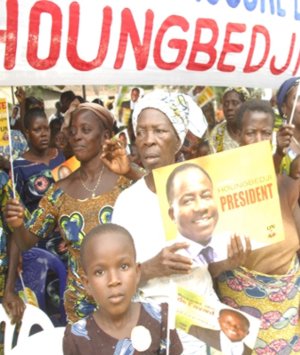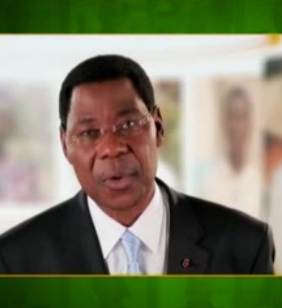|
Benin Politics | Society Benin protesters won demanded vote delay
The Constitutional Court of Benin yesterday afternoon ruled in the favour of the country's opposition - backed by crowds of protesters - and delayed the presidential elections for another week, to 13 March, in order to expand the electoral roll further. This follows an earlier rescheduling from 27 February to 6 March.
The team "expressed its support for a postponement of the presidential elections by a few days to a date that is consistent with the deadlines prescribed by the Constitution," according to a joint communiqué issued on Thursday. The team also urged protesters to "demonstrate a high sense of responsibility ... at this historic moment of democratic consolidation." The Constitutional Court agreed with the opposition and the UN, AU, ECOWAS mission, with a sentence to a large degree repeating the arguments of the foreign delegation. The main challenger in the poll, Adrien Houngbédji of the Union makes the Nation (UfN) party, spearheaded the protests and legal action against the Boni government. It is widely believed that Mr Houngbédji's defence of the un-registered voters would boost his popularity in the upcoming polls. Benin since the 1990s has enjoyed one of Africa's most functional and peaceful multi-party democracies, with heads of states accepting defeat in election and respecting the two-term limit. Even President Boni so far has not shown many authoritarian tendencies. By staff writers © afrol News - Create an e-mail alert for Benin news - Create an e-mail alert for Politics news - Create an e-mail alert for Society news
On the Afrol News front page now
|
front page
| news
| countries
| archive
| currencies
| news alerts login
| about afrol News
| contact
| advertise
| español
©
afrol News.
Reproducing or buying afrol News' articles.
You can contact us at mail@afrol.com









